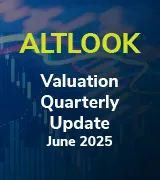
Webinar Replay: How 2024 Elections Influence Business Strategies

During our webinar, How 2024 Elections Influence Business Strategies, we assembled a panel of experts discussed the implications and potential risks businesses face following the upcoming US Elections. The theme of the webinar was ‘making sense of uncertainty’ and over the course of the conversation two key themes emerged from the panelist’s:
- Policy risk: Key areas of focus include tax, tariffs, labor market regulations and immigration. Foreign policy is also of high importance with markedly different approaches possible regarding multilateral organizations, trade policy / sanctions and military conflicts.
- Political instability risk: Instability during campaigns, on election day, and post-election, influenced by factors like electoral violence and election result disputes. National political instability should also be viewed in the context of a geopolitical landscape seeing more turbulence than at any time since 1990.
We also surveyed our attendees from financial institutions, law firms and corporations. The results revealed that 59% felt their businesses were somewhat prepared for the upcoming U.S. election, 33% felt very prepared and 7% felt not prepared at all. Additionally, they indicated that their businesses are primarily preparing for potential post-election changes through financial contingency planning (38.20%) and scenario planning and risk monitoring (38.20%), with a notable portion also diversifying investments (26.50%).
Businesses should prepare for all foreseeable outcomes, even those with a low probability of occurring, as the approach of each candidate and party on a range of issues differ significantly. Each scenario presents unique challenges and opportunities, making it crucial to plan for various outcomes, result timings, and post-election uncertainty. Kroll experts discussed how political outcomes impact financial markets, economic stability, financial crime, public perception, and reputation. Here are three key takeaways:
- Elections influence market volatility and investor sentiment. Kroll’s analysis shows that since JFK’s presidency in 1961, the S&P 500 (the most widely regarded benchmark for the health of the US stock market) performs worst during U.S. election years. Markets and businesses prefer certainty in policy and regulations. While stock markets can recover from almost anything, uncertainty—such as not knowing the election outcome —can create turmoil. Control of key political positions can also significantly impact the capital markets. Many businesses have adopted a wait-and-see approach amid major questions about corporate expenditure, business revisions, tariffs and tax reforms. Campaign promises may differ from the actual policies that are implemented, so businesses should prepare for all potential outcomes.
- Businesses can quickly become the focus of controversial issues: Businesses can find themselves entangled in political or controversial issues, which can have the potential to damage their reputations. The heightened polarization of online debate—amplified around elections—can draw companies into problematic public positions, even when those businesses strive to stay neutral. Reputation is a fragile asset and preparedness is crucial. Businesses best positioned to capitalize on opportunities and respond to unexpected reputational risks have robust communication strategies to manage stakeholder expectations during periods of political instability. They should monitor financial performance, global events, and public discourse related to their brands that could influence operations and decisions.
- Increasingly, elections bring new financial crime risks: Many countries are experiencing heightened fraud and corruption, and new administrations can lead to rapid changes in the regulatory and sanctions environment. From the financial integrity of elections and campaign financing to connections with politicians, thorough due diligence and regular monitoring—powered by new capabilities such as AI—are essential. However, these technologies still require a human touch and review to ensure accuracy and reliability. Businesses, especially financial institutions, should invest in flexible, adaptive systems to enhance efficiency, effectiveness, and compliance. Successful implementation demands careful planning, expertise and high-quality data.
Elections can significantly influence business strategies. By understanding potential risks and preparing for various outcomes, businesses can maintain stability and growth. In all volatility, whether political or economic, there are opportunities. Effective anticipation and management of risk will be a competitive advantage in an uncertain world.
Stay informed, plan for political upheavals, and use technology combined with high-quality data and expertise to navigate these tumultuous times effectively.
Latest Resources
Why High-Quality Data is Crucial to Fighting Financial Crime
by Thomas Bock, Paul Connolly, Fernanda Barroso

AI Security Risks and Recommendations: Demystifying the AI Box of Magic
by Alex Cowperthwaite, Pratik Amin

Safeguarding Election Security Through Penetration Testing

AI Risks and Compliance Strategies
by Ana D. Petrovic

Webinar—2025 Global Business Sentiment Survey: Resilience, Risks, and Preparedness
Join Kroll’s experts for a webinar to discuss key findings from our 2025 Business Sentiment Survey and explore strategies to help boost business resilience and seize opportunities.

Webinar – ALTLOOK: Valuation Quarterly Update–June 2025
On Thursday, June 12, 2025, please join Kroll’s quarterly ALTLOOK discussion of key market and regulatory considerations that are expected to impact June 30, 2025, private valuations.

Tariff Webinar Series: Trade and Customs
Currently, global organizations are looking for comprehensive solutions to stay ahead in a dynamic market with changing regulatory landscape impacting the supply chain.

Kroll to Exhibit at Airmic Annual Conference 2025
Kroll is pleased to announce that it will be exhibiting at the Airmic Annual Conference 2025.




